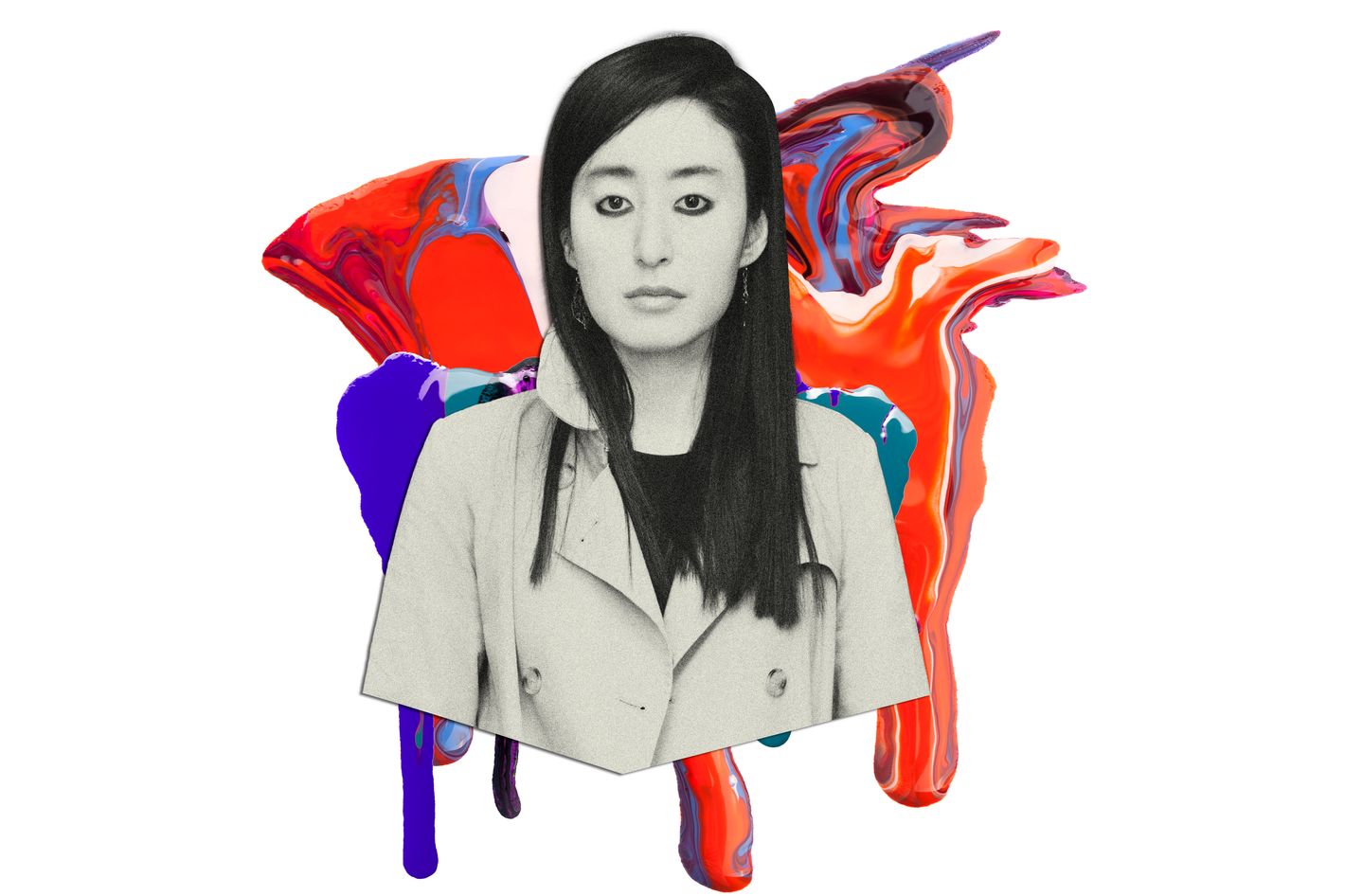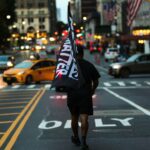
R.O. Kwon is a writer who takes her time. The author wrote her best-selling 2018 debut, The Incendiaries — an unsettling campus novel about a popular undergrad lured into a Fundamentalist cult, the self-conscious scholarship boy who pines after her, and the enigmatic cult leader — over the course of a decade. It’s a dark, alluring story of obsession and servitude, for which Kwon drew from her own Evangelical upbringing and loss of faith at 17. She spent the first two years of writing stuck on the same lines, fussing over microscopic tweaks in letters and syllables. “I find that starting writing for the day is generally a very difficult and terrifying experience,” she admits. “The next day I’ll look at what I thought was fantastic the day before and just be like, ‘Oh, God, let’s just redo all of it.’” The effort paid off: The Incendiaries became a finalist for the National Book Critics Circle award for Best First Book and is in the midst of being adapted into a TV show.
Kwon has since co-edited Kink, a 2021 anthology of short stories about sex, power, and lust, with the novelist Garth Greenwell. She occasionally writes nonfiction — with essays appearing in the New York Times, The Guardian, The Paris Review, and more — and publishes annual recommendations of anticipated books by writers of color. She also teaches part-time, recently finishing a stint as a visiting writer at Stanford.
Now Kwon is gearing up to release her second novel, Exhibit, on May 21. It follows a charged affair between two Korean American women, a photographer haunted by an ancestral spirit and an injured world-class ballerina. Writing so openly about queer desire between characters who have similar identities as her proved challenging: “It feels very dangerous to give the slightest hint in public that I’ve ever had sex,” Kwon says. “I’m very aware that a lot of people will interpret the book as thinly veiled autobiography.” Though Kwon learned to put more guardrails on her creative practice, in the end, Exhibit still took nine years to complete; she hopes that her next book will be more manageable. “I would really like it to take six years,” she laughs. “But we’ll see what happens.” Kwon lives in San Francisco with her husband; here’s how she gets it done.
On her “somewhat metal” morning routine:
I’m really nocturnal. My ideal schedule involves going to sleep close to dawn, like around 6 or 7 a.m., then waking up around noon or so. I have a somewhat metal morning routine. I take half of a caffeine pill, and then I keep my laptop near my bed, so I just roll over and grab it and wait for the caffeine to kick in. I listen to music that I only ever listen to when I’m writing — some contemporary pop, some classical — to such an extent that a friend was gonna sing one of my writing songs at karaoke, and I just was like, “I love you, but I’m going to leave the room.” I like late Renaissance music. I’m fond of the Italian composer Giovanni Pierluigi da Palestrina because I grew up so religious.
Sometimes I start by reading poetry or part of a book. You know how a cappella singers start with somebody who sets the pitch? It feels like that, bringing me back to what I was doing the day before. The faster I can get from dream state into writing state, the better off I am. If I’m eating, I already start getting distracted. I don’t make coffee until later. I try not to even get out of bed until I’ve written a little bit at least.
On her writing rituals:
In addition to the music, I have a writing shawl that I only use when I’m working on fiction. Whenever the shawl is on me, I won’t do anything else. I also have a mug that is devoted just to fiction writing. I use particular lighting. A lot of this is influenced by my dear friend, Ingrid Rojas Contreras, who wrote a piece in the New York Times about her own writing rituals. It used to be that I had almost no self-control. But now that I have these practices in place, I’m instinctively unwilling to sully my holy space. Also, I want to clarify that writing isn’t just sitting at the desk typing away. I count reading, staring, and stretching as writing time.
On the joys of powerlifting:
How I take a break is usually by reading, and maybe I’ll watch a movie or a TV show. I’ve thought about how every kind of break I take is related to writing. Powerlifting is the one exception. When I’m in the middle of lifting something, because it’s a little dangerous, I’m hyperfocused on what I’m doing. I used to love climbing, specifically bouldering. When you’re on a wall and dangling from two fingers and part of a toe, it’s really hard to think about anything else. But I sprained my ankle three times, and the last time, I was out of commission for like five months. So in 2020, a friend of mine was like, “I think you’ll like lifting.” I took it up on his suggestion and very quickly loved it.
On her path to becoming an author:
I majored in economics in college, which was a gigantic mistake. I still have nightmares about the classes I took. My parents have had a lot of financial troubles, and I could not see what it would be like to be an Asian artist in America. For a year, I tried doing something else. I was working 90 hours a week as a consultant. It filled me with grief to be away from the words. So in a way, that was really clarifying. I remember I was talking to my mother on the phone, and she said, “Why don’t you apply to graduate school? That would give you some time to write.” I was standing in the grocery-store soup aisle, and this is almost cheesily cinematic, but the world went from grayscale to color. So I went to Brooklyn College, and that’s when I started working on The Incendiaries.
On making her side gigs serve her writing:
I prioritize jobs that let me come home and have a flexible schedule. After grad school, I did a lot of copyediting. Often when I was insomniac, which was a lot of the time, I just made a point of applying to every single thing I could, including fellowships. I had like two separate years when a fellowship really helped cover the bulk of my costs. I want to plug one called the Elizabeth George Foundation, which is specifically geared toward people who haven’t written a book yet.
I teach at the latest possible time. A lot of my life is freelance, so I don’t go into an office Monday to Friday. Often, when I have 9 a.m. meetings at this point, I approach them from the other side by staying up until then.
On pushing past writer’s block:
What helps more than anything is turning to other people’s work. While I’m reading, I note in the back of the book the pages where I underlined something. Eventually I write the words down. So I have two massive documents — they feel like treasure troves — that hold some of the most resonant lines and passages from everything I’ve read. I keep the document going until it gets so long that it has trouble saving. Then I just move on to a new document and do the same thing. So far it’s been true that, if I turn to these lines, they can spark thoughts that can get me out of being stuck.
On knowing when she’s finished:
With both novels so far, it’s seemed to me that I’m finished when I can open the book to any page randomly and read three sentences and not want to change anything. That’s my test for picking up what I want to read for personal reasons — if it has language that feels exciting to me — and I realized that has to be the test for how I write as well.
On sticking with writing even when she doubts herself:
With Exhibit, it wasn’t until maybe four or five years in that I thought it finally looked like something that resembles a novel. I told myself pretty much every single day that I wasn’t going to let anyone read it, sometimes out loud. That lie was very useful, and it’s clearly dramatically falling apart days from publication. With both books, there have been times when I’ve thought, “Oh my God, this just isn’t working. What am I doing? Why didn’t I become a dermatologist?” But I keep on thinking of a 17-year-old version of myself who was an avid reader and felt in various ways desperately alone. I think about the fellowship that books can provide — at various points in my life, they’ve been genuinely lifesaving. With Exhibit, I was trusting in fear as a guiding sign for what I wanted to write. And I just kept moving forward, trying to write down what I was terrified of writing. It helps to remind myself of what I’m doing and why it’s worth so many hours and panic attacks and caffeine pills.
Cat Zhang , 2024-05-13 13:00:13
Source link


